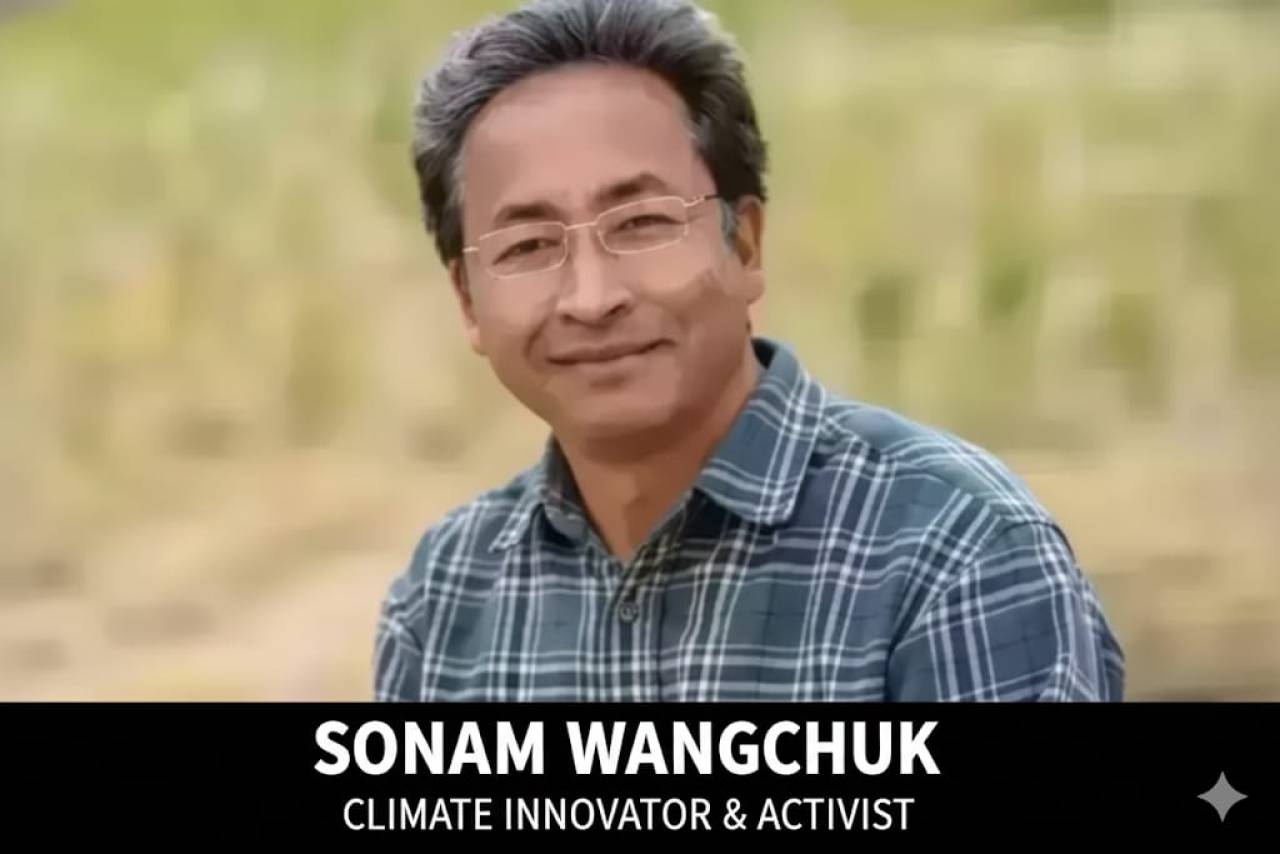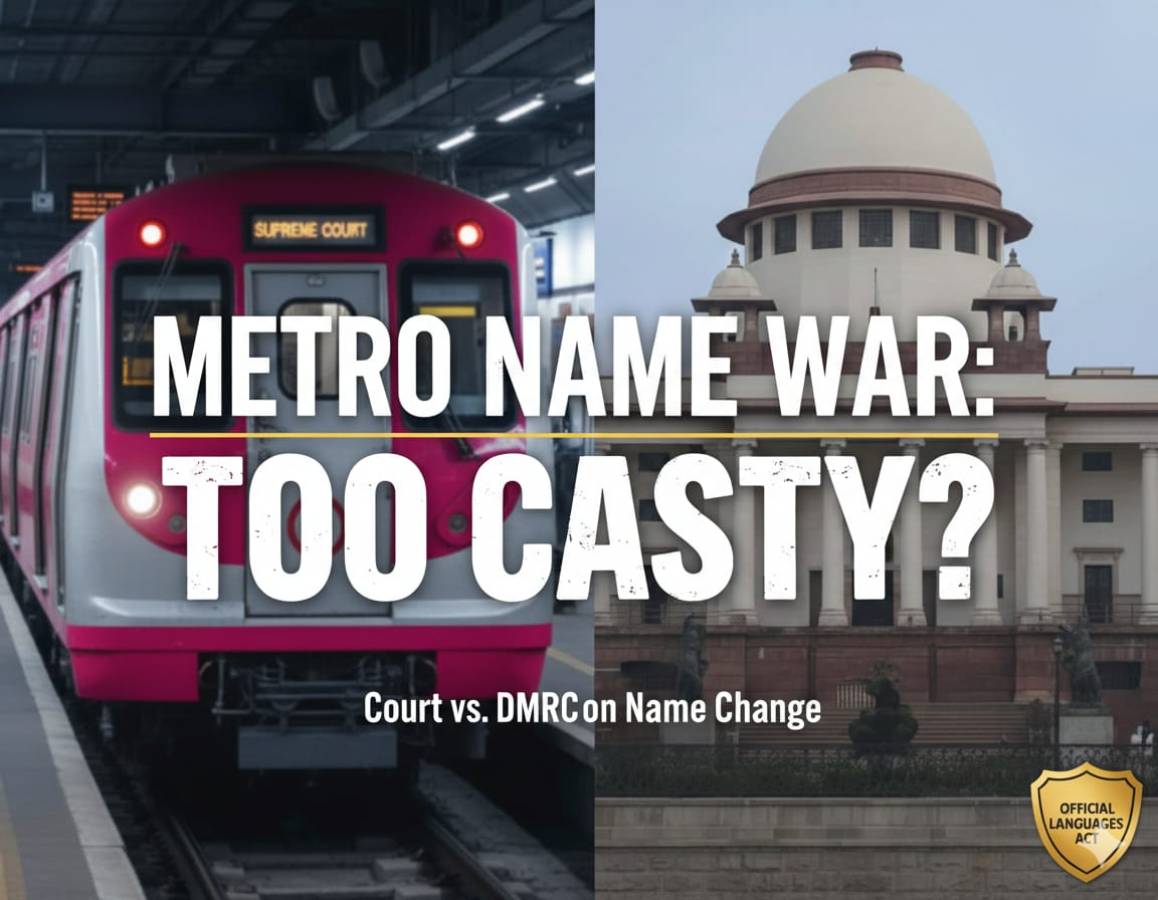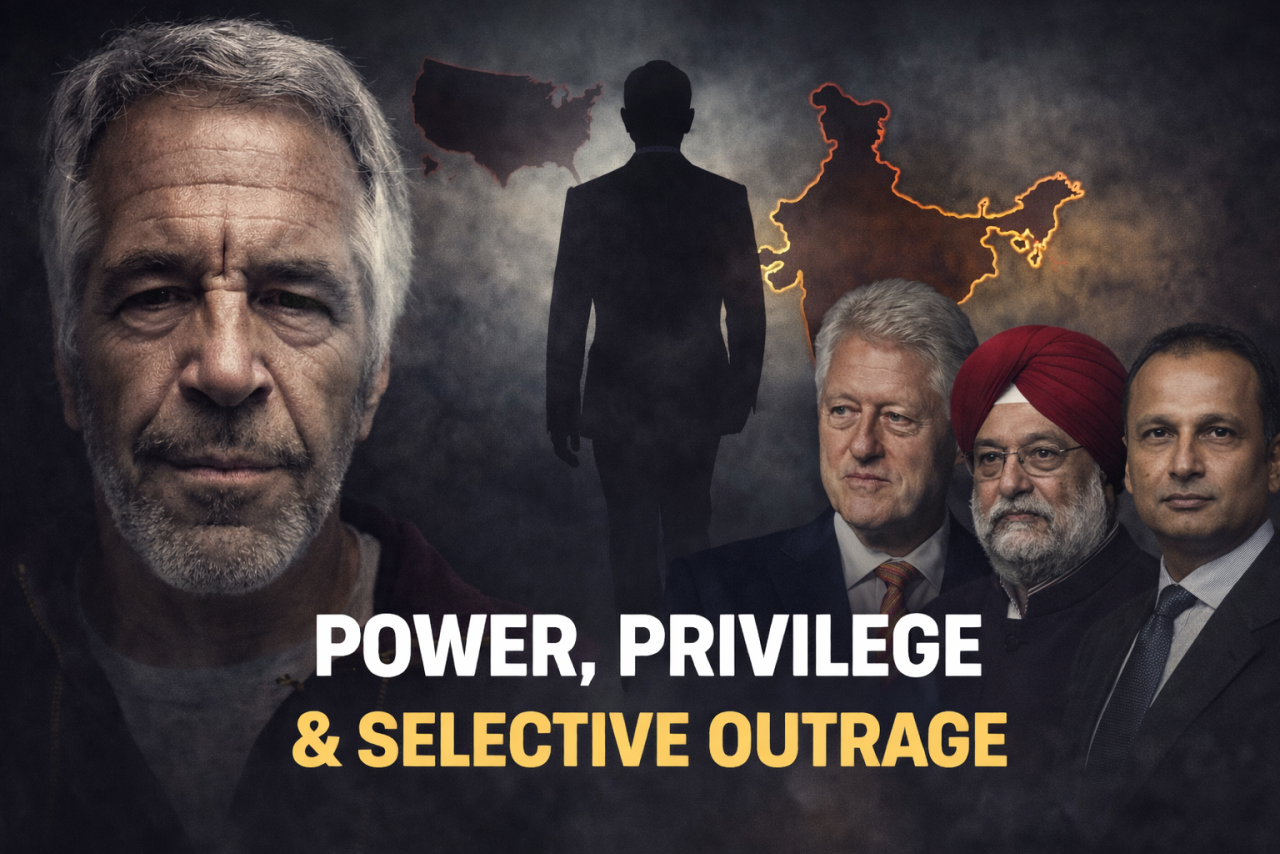
The world recently applauded Sonam Wangchuk, the Ladakhi engineer, innovator, and environmentalist, after Time Magazine named him among “The 100 Most Influential Climate Leaders.” The recognition was more than just symbolic. It celebrated a lifetime of ideas and inventions aimed at helping the fragile Himalayan ecosystem survive the pressures of climate change. His most famous innovation, the ice stupa—a towering cone of frozen water that melts gradually to supply villages with water through dry months—has inspired communities across the Himalayas and beyond.
Yet, while the world honors his work, Wangchuk sits behind bars in India, detained under the draconian National Security Act (NSA). The irony is bitter. A man who has devoted his life to preserving nature and uplifting marginalized communities is being treated as a national security threat by his own government. His predicament exposes a disturbing contradiction between international acclaim and domestic repression—a reflection of the uneasy space dissent occupies in India’s democracy today.
The Crime of Speaking Up
Wangchuk’s arrest has little to do with his environmental projects. It stems instead from his advocacy for Ladakh’s democratic and ecological rights. After Ladakh was carved out as a Union Territory in 2019, residents lost many of the protections they previously held under Jammu and Kashmir’s statehood. Local leaders feared that the region’s unique tribal culture, fragile ecology, and scarce land could soon fall prey to unregulated industrial and demographic changes.
Wangchuk emerged as the most prominent voice of this movement. His demands were clear: statehood for Ladakh and inclusion under the Sixth Schedule of the Indian Constitution, which would guarantee special protections for its indigenous population and environment. He championed these causes peacefully, inspired by the Gandhian principle of ahimsa. His non-violent protests included extended hunger strikes in sub-zero temperatures—acts of conscience meant to awaken the nation to Ladakh’s plight.
Instead of engaging with his demands, the government escalated its response. Authorities accused him of inciting unrest during a peaceful demonstration, a claim his supporters and legal team strongly reject. Using the NSA—a law designed to detain individuals deemed threats to national security without charge or trial—the state silenced one of India’s most admired citizens. Under this law, Wangchuk can be held for up to twelve months without facing a courtroom.
For his wife and legal counsel, the arrest is a blatant misuse of power. They argue that his detention is not about maintaining law and order but about suppressing a powerful symbol of peaceful resistance. By labeling dissent as danger, the government appears willing to conflate advocacy for rights with subversion of the state.
The Paradox of Recognition
Sonam Wangchuk embodies a rare dual identity—he is both a global hero and a domestic dissident. Internationally, he is celebrated as an innovator and visionary. He has won the Rolex Award for Enterprise and the Ramon Magsaysay Award, among others, and has inspired generations through his educational initiatives in Ladakh. His approach to problem-solving even influenced the beloved Bollywood character “Phunsukh Wangdu” in 3 Idiots.
Yet, within his own country, the same man is treated as a potential threat. The same government that once praised his ingenuity now brands him a troublemaker for defending the rights of his people. This striking contradiction reveals how societies often reward innovation but punish independence. India applauds its heroes when they build, but questions them when they begin to speak.
The political message is clear and chilling: you may serve your nation by solving global problems, but challenging domestic policies—no matter how peacefully—is off-limits. Environmentalism is welcome as long as it does not question power.
A Mirror to India’s Democracy
Wangchuk’s imprisonment is more than an isolated incident; it has become a moral test for India’s democracy. True democracy is measured not by the absence of criticism, but by the government’s capacity to tolerate it. When peaceful activism is met with preventive detention, it signals a shrinking space for free expression.
His detention raises uncomfortable questions. Can citizens still hold a different political opinion without fear? Can an activist challenge policy without being labeled a threat? The answers to these questions will shape not only Ladakh’s future but also the credibility of India’s claim to democratic values.
The contrast between how the world sees Wangchuk and how his country treats him is telling. Time Magazine celebrates him for protecting humanity’s shared environment. His homeland, meanwhile, confines him for protecting his region’s fragile ecosystem and culture. The disconnect between these two narratives reflects a deep unease within India’s democratic framework—a tendency to silence those who remind the state of its constitutional promises.
The Legacy Beyond Bars
History has a way of deciding who the true patriots are. Sonam Wangchuk’s legacy will not be defined by the walls that confine him but by the ice stupas that continue to give life to Himalayan communities. His imprisonment may dim his voice temporarily, but it amplifies his message about justice, sustainability, and the right to dissent.
The international honor he received is a reminder that the world still values what he stands for: innovation guided by compassion. The tragedy lies in the fact that while the world listens, his own government refuses to hear him.
Ultimately, Wangchuk’s story is not just about one man’s suffering—it is about what a society loses when it mistakes dissent for disloyalty. His courage exposes the fragility of freedom, and his silence behind bars speaks louder than any protest.
The world may celebrate Sonam Wangchuk as a symbol of hope, but India must decide whether it wants to remember him as a hero—or as another victim of its intolerance toward truth. His contributions to humanity deserve to be heard, not handcuffed.
By Gautam Jha
Managing Editor





















